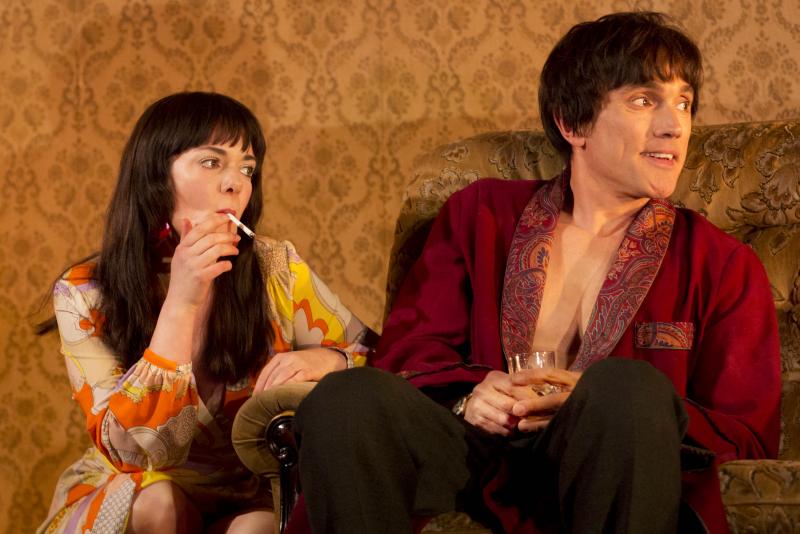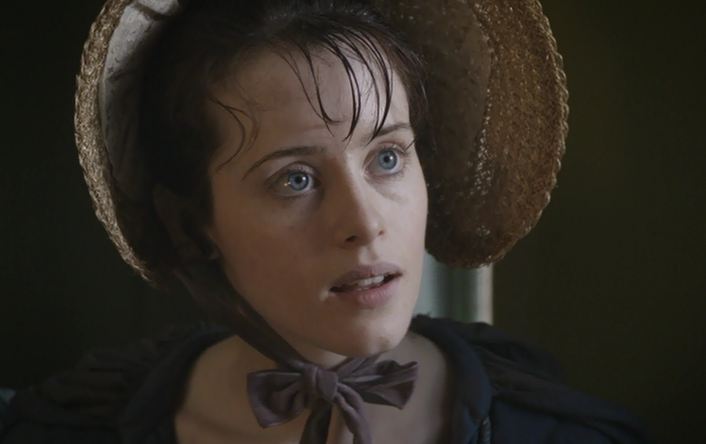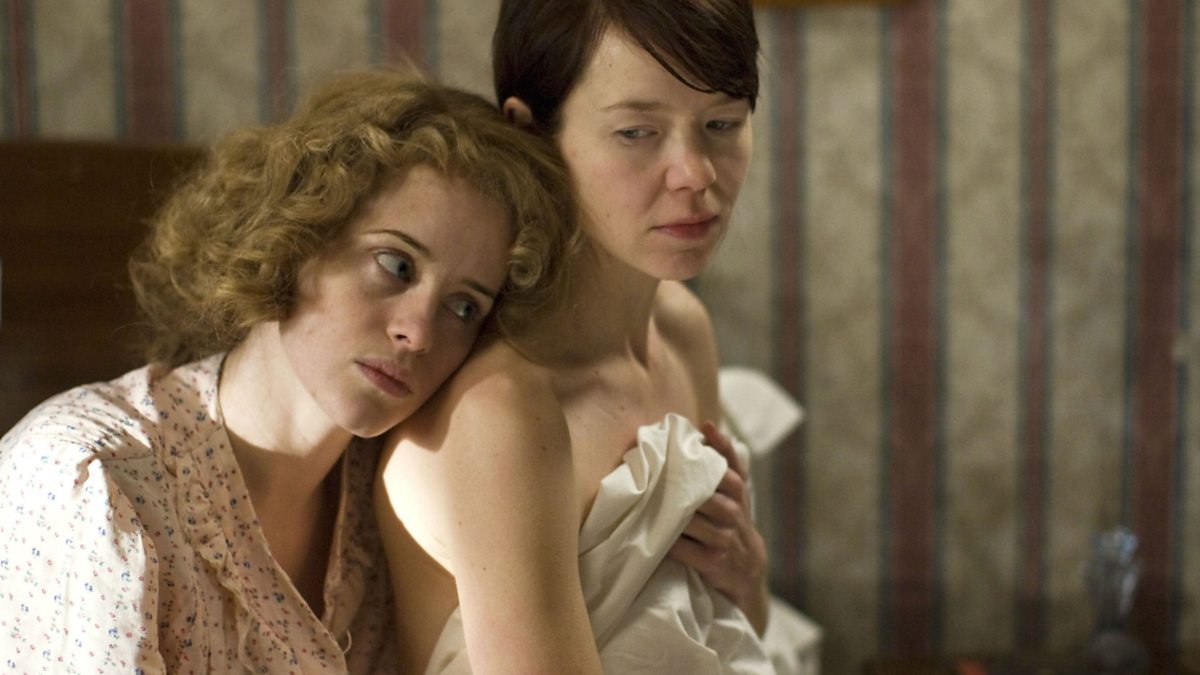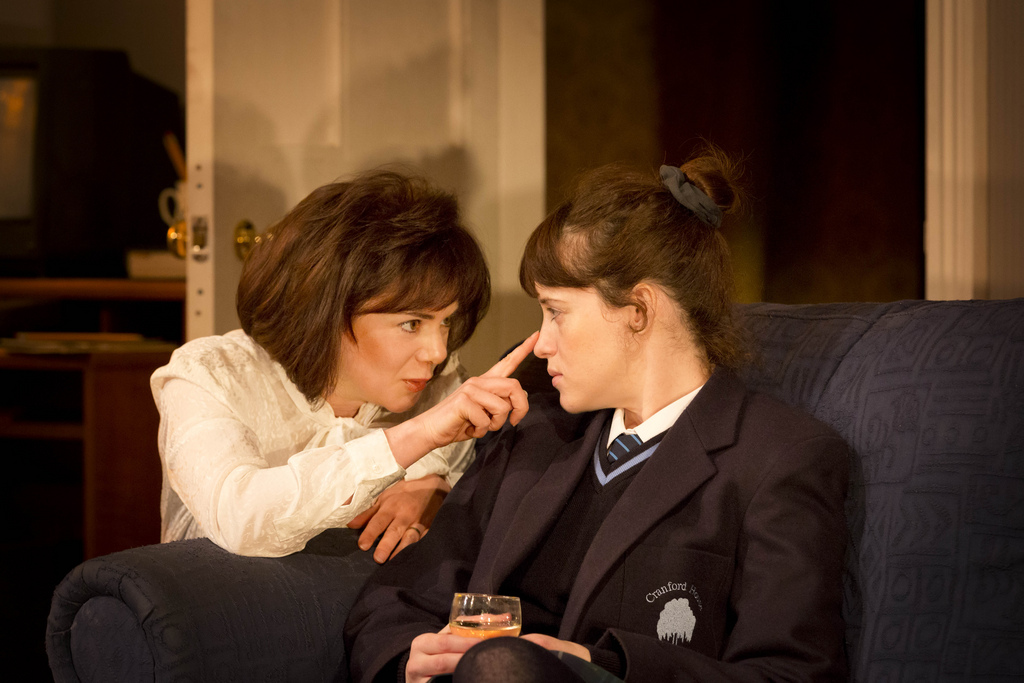Love, Love, Love, Royal Court Theatre | reviews, news & interviews
Love, Love, Love, Royal Court Theatre
Love, Love, Love, Royal Court Theatre
Mike Bartlett’s new play is a flawed study of generational conflict

The best playwrights have an antenna-like ability to pick up, and respond to, the new conflicts and fault lines that appear in society. Over the past five or so years, the antagonism between the baby-boomer generation, who are now parents with everything, and their kids, who have nothing but debts, has increasingly intensified.
The curtain comes up on a pair of contrasting English brothers, one young and hippyish (Kenneth) and the other much more staid (Henry). It’s June 1967, the Summer of Love. But the uneasy relationship of Henry, who works and rents the flat, and Kenneth, who is a bit of dropout, comes under increased strain when Sandra, Henry’s girlfriend, pops around. She’s stoned, and, to Henry’s dismay, she hits it off with his brother.
But can Rose do anything about the situation?
The second act fast forwards to 1990, and the location is Kenneth and Sandra’s terraced home in Reading (cue a joke, twice). By now, they have two kids — the musically inclined Rose and the troubled Jamie — but the settled life doesn’t seem to suit them. For the children of the hippie 1960s and the revolutionary 1970s, normal everyday life is unsatisfying. Annoyed by the demands of their kids (played by George Rainsford and Claire Foy, pictured below right with Hamilton), the parents begin to quarrel.
The final act brings us right up-to-date. The older generation now occupies a large country house, their pensions are maturing nicely and they feel free to enjoy all the riches, emotional as well as material, of the world. But the problem is their kids. Burdened by debt, stuck in poor jobs and living in cramped housing, Rose — like most of her friends — is angry. But can she do anything about the situation?
Bartlett writes with his customary clarity and immediacy, deftly exploring the characters, and as sympathetic to the rather straitlaced Henry as to his wilder brother, as empathetic to the adventurous Sandra as to her more uncertain children. The conflict between them crackles with all of the energy of the contemporary. At the same time, Bartlett realises that in the 1960s, the generational conflict between “square” parents and their “hip” kids could also be played out — as here — between siblings and members of the same generation.
 This is also a play about truth and honesty in relationships. Not only is there no love lost between Kenneth and Henry, but the growing sexual competition between Kenneth and Sandra is fuelled by their use of the idea of sexual honesty as a weapon in the sex war, with terrible results, not least for their children. Likewise, when Rose accuses her parents of being selfish and dishonest, her point comes across very strongly.
This is also a play about truth and honesty in relationships. Not only is there no love lost between Kenneth and Henry, but the growing sexual competition between Kenneth and Sandra is fuelled by their use of the idea of sexual honesty as a weapon in the sex war, with terrible results, not least for their children. Likewise, when Rose accuses her parents of being selfish and dishonest, her point comes across very strongly.
Yet the play is not without its problems. The great leaps from 1967 to 1990 to now are so breathtaking that character development, and dramatic conflict, are often sacrificed to the desire to make broader points about society. Occasionally, Bartlett’s writing meanders and there are too many repetitive lines. Yet, at his best, he does create memorable moments of domestic discomfort and family fracture.
The play, which takes its title from the Beatles’s 1967 anthem "All You Need Is Love", was first staged in a touring production in 2010. Now recast, James Grieve’s production is often sluggish and a touch too jokey, but is saved by vivid performances from Hamilton as Sandra and Foy, who recently starred in another 1960s drama, the BBC's White Heat. Ben Miles (Kenneth) and Sam Troughton (Henry) are also just right. But Lucy Osborne’s designs are too loud, and two intervals turn the evening into a three-hour marathon, so it sometimes feels as if Grieve is hitting the audience over the head. Ouch, stop it.
CLAIRE FOY’S CV
 Little Dorrit (2008). “Dickens did just see her as homely, angelic and giving. I looked on her as a sort of a carer whose parent or child is ill. That made her believable in my head.”
Little Dorrit (2008). “Dickens did just see her as homely, angelic and giving. I looked on her as a sort of a carer whose parent or child is ill. That made her believable in my head.”
Upstairs Downstairs (2010-12). Lady Persephone, posh little brown shirt based on the Hitler-obsessed Unity Mitford, tops herself in a dramatic exit from the second series.
The Night Watch (2011). Foy plays a troubled lesbian toy girl in an adaptation of Sarah Waters’ novel about heartache in the Blitz (pictured below with Anna Maxwell Martin)
 Wreckers (2011). Foy is wife to Benedict Cumberbatch in fraught low-budget Fenland drama
Wreckers (2011). Foy is wife to Benedict Cumberbatch in fraught low-budget Fenland drama
The Promise (2011). In Peter Kosminsky’s epic historical drama, Foy plays Erin Matthews, an 18-year-old obsessed with investigating the story of the British soldiers serving in Palestine in the years before our ignominious exit. “I just recognised quite a lot of things about me when I was her age.”
White Heat (2012). Foy is a feminist child of the Sixties who grows up to become Juliet Stevenson.
Hacks (2012). Guy Jenkin comedy inspired by the hacking scandal, in which Foy's feral tabloid editor Kate Loy is not remotely based on to Rebekah Brooks. A rare comic outing for an actress with natural funny bones.
 Love, Love, Love (2012). In Mike Barlett’s played Foy played a child of a hippie baby boomer. “It’s the Philip Larkin thing: she really does believe her parents did fuck her up. I hope I’m not like she is when she’s 37." (Pictured, Foy with Victoria Hamilton)
Love, Love, Love (2012). In Mike Barlett’s played Foy played a child of a hippie baby boomer. “It’s the Philip Larkin thing: she really does believe her parents did fuck her up. I hope I’m not like she is when she’s 37." (Pictured, Foy with Victoria Hamilton)
Macbeth (2013). “Why does everyone think she’s so evil? My approach to every character is you essentially want to understand. They always have something they are fighting against. They have lost a baby and that’s the catalyst for everything.”
Wolf Hall (2015). Foy’s Anne Boleyn goes toe to toe with Mark Rylance and Damian Lewis.
The Crown (2016). Queen of all she surveys. Bring on series two.
rating
Explore topics
Share this article
The future of Arts Journalism
You can stop theartsdesk.com closing!
We urgently need financing to survive. Our fundraising drive has thus far raised £49,000 but we need to reach £100,000 or we will be forced to close. Please contribute here: https://gofund.me/c3f6033d
And if you can forward this information to anyone who might assist, we’d be grateful.

Subscribe to theartsdesk.com
Thank you for continuing to read our work on theartsdesk.com. For unlimited access to every article in its entirety, including our archive of more than 15,000 pieces, we're asking for £5 per month or £40 per year. We feel it's a very good deal, and hope you do too.
To take a subscription now simply click here.
And if you're looking for that extra gift for a friend or family member, why not treat them to a theartsdesk.com gift subscription?
more Theatre
 Troilus and Cressida, Globe Theatre review - a 'problem play' with added problems
Raucous and carnivalesque, but also ugly and incomprehensible
Troilus and Cressida, Globe Theatre review - a 'problem play' with added problems
Raucous and carnivalesque, but also ugly and incomprehensible
 Clarkston, Trafalgar Theatre review - two lads on a road to nowhere
Netflix star, Joe Locke, is the selling point of a production that needs one
Clarkston, Trafalgar Theatre review - two lads on a road to nowhere
Netflix star, Joe Locke, is the selling point of a production that needs one
 Ghost Stories, Peacock Theatre review - spirited staging but short on scares
Impressive spectacle saves an ageing show in an unsuitable venue
Ghost Stories, Peacock Theatre review - spirited staging but short on scares
Impressive spectacle saves an ageing show in an unsuitable venue
 Hamlet, National Theatre review - turning tragedy to comedy is no joke
Hiran Abeyeskera’s childlike prince falls flat in a mixed production
Hamlet, National Theatre review - turning tragedy to comedy is no joke
Hiran Abeyeskera’s childlike prince falls flat in a mixed production
 Rohtko, Barbican review - postmodern meditation on fake and authentic art is less than the sum of its parts
Łukasz Twarkowski's production dazzles without illuminating
Rohtko, Barbican review - postmodern meditation on fake and authentic art is less than the sum of its parts
Łukasz Twarkowski's production dazzles without illuminating
 Lee, Park Theatre review - Lee Krasner looks back on her life as an artist
Informative and interesting, the play's format limits its potential
Lee, Park Theatre review - Lee Krasner looks back on her life as an artist
Informative and interesting, the play's format limits its potential
 Measure for Measure, RSC, Stratford review - 'problem play' has no problem with relevance
Shakespeare, in this adaptation, is at his most perceptive
Measure for Measure, RSC, Stratford review - 'problem play' has no problem with relevance
Shakespeare, in this adaptation, is at his most perceptive
 The Importance of Being Earnest, Noël Coward Theatre review - dazzling and delightful queer fest
West End transfer of National Theatre hit stars Stephen Fry and Olly Alexander
The Importance of Being Earnest, Noël Coward Theatre review - dazzling and delightful queer fest
West End transfer of National Theatre hit stars Stephen Fry and Olly Alexander
 Get Down Tonight, Charing Cross Theatre review - glitz and hits from the 70s
If you love the songs of KC and the Sunshine Band, Please Do Go!
Get Down Tonight, Charing Cross Theatre review - glitz and hits from the 70s
If you love the songs of KC and the Sunshine Band, Please Do Go!
 Punch, Apollo Theatre review - powerful play about the strength of redemption
James Graham's play transfixes the audience at every stage
Punch, Apollo Theatre review - powerful play about the strength of redemption
James Graham's play transfixes the audience at every stage
 The Billionaire Inside Your Head, Hampstead Theatre review - a map of a man with OCD
Will Lord's promising debut burdens a fine cast with too much dialogue
The Billionaire Inside Your Head, Hampstead Theatre review - a map of a man with OCD
Will Lord's promising debut burdens a fine cast with too much dialogue

Add comment